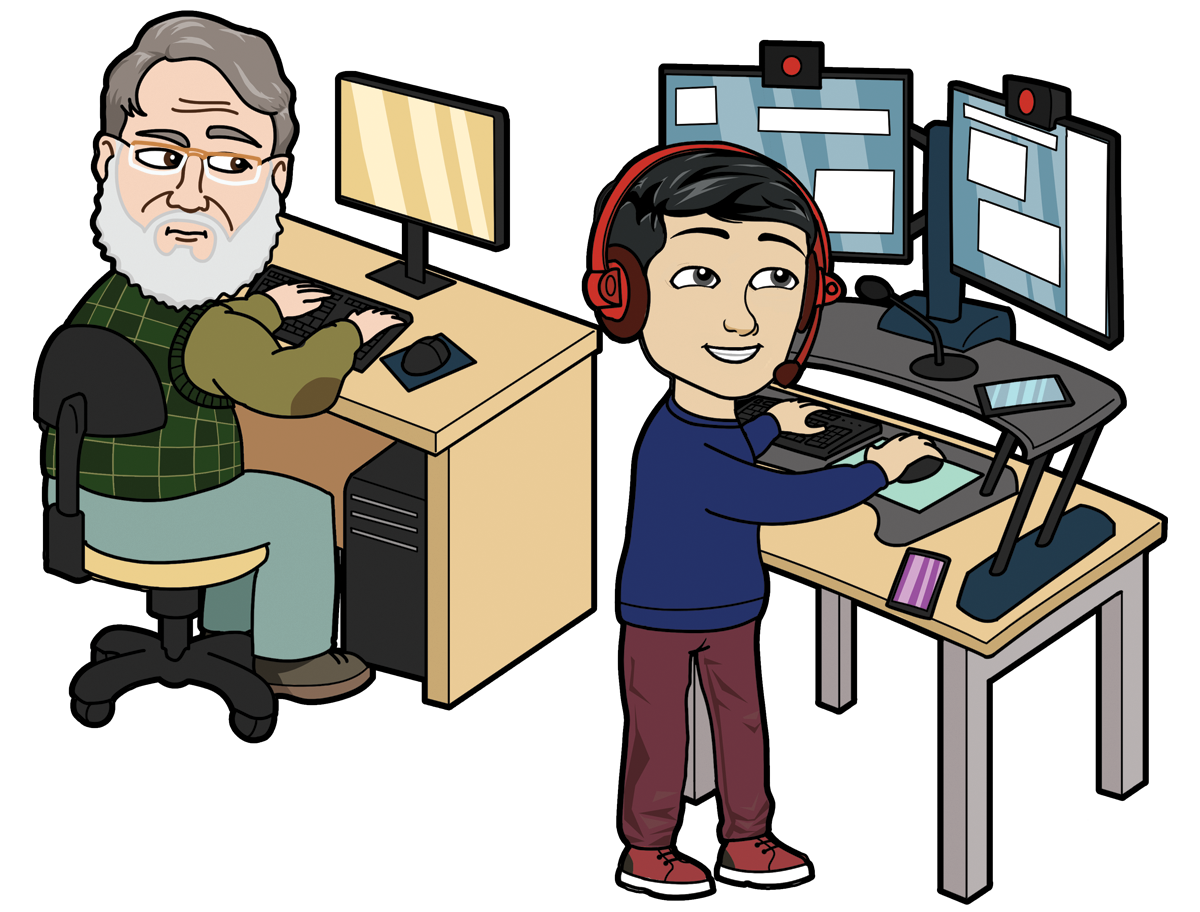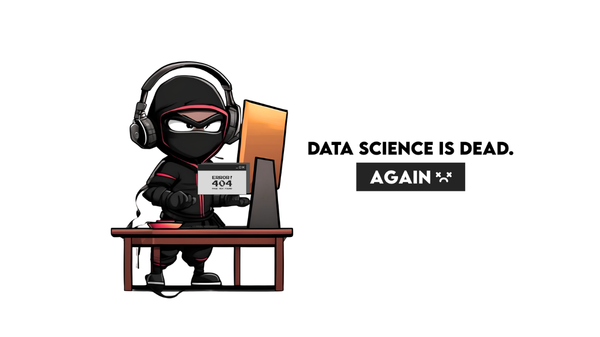4 Misconceptions When Working With Older, More Experienced Coworkers

Categories:
 Written by:
Written by:Nathan Rosidi
What are the things you should try to understand about your older, experienced colleagues to make working with them easier for you?
It can sometimes be very difficult. It can be a completely different world working with older coworkers with more experience than working with coworkers of your age. Yes, it’s probably easier to work with your generation. You have much more in common; you understand each other better.
Being young, well-educated, and well-paid can easily make you arrogant. Which can also make you think that your more experienced colleagues are less versed in technology, or lazy, even less knowledgeable. But what if that is only a misconception?
What if you don’t like working with older colleagues not because they’re old, but because you don’t understand them. So what are the things you should try to understand about your older, experienced colleagues to make working with them easier for you?
Old People Like to Talk. A lot! But There’s a Reason
Yes, that’s true, they talk a lot. Sometimes their talking makes you roll your eyes so hard you see your brain. So much talk seems unnecessary to you; everything is clear to you. You just want to start working on the project and not lose your precious time on some discussions that don’t even seem to have anything to do with the project itself.
But there’s a reason they talk a lot. It’s exactly what they do have, and you (still) don’t: experience. Experience that taught them it’s often necessary to play, well, a little stupid. Not to avoid their responsibility, but to make sure all the details about the project are clear. They actually want to make their involvement and the project itself as efficient as possible.
What seems to you as an unnecessary discussion over crystal clear instructions might just be their experience. The experience that makes them see where the project could go all wrong. Because they’ve already seen it go wrong exactly the same way. They want to align with the stakeholders, set the expectations, and scope out the problem properly. They have had experiences where they were burned on a project where they scoped out the problem wrong and didn't meet the stakeholders’ expectations. But they did a lot of work which went to waste since it wasn't what the stakeholder wanted. They want to make sure that doesn’t happen to you for the first time. Or to them ever again.
Through experience, they are able to understand that the work you set up at the beginning will help them save time and re-work when the project is executed. And you will probably find a simpler solution for the stakeholder if you communicate first rather than just start coding.
They Seem Lazy. But Are They Really?
You can see them as lazy. That is if your definition of not being lazy is working 80 hours a week. But not working 80 hours a week when there’s no need for that is not being lazy; it’s reasonable.

They are reasonable because they’re not trying to prove themselves. They've established a reputation, so they leverage their strengths. For sure, they also worked unnecessary hours to prove themselves when they were younger, even when not necessary. Now that they don’t need to prove themselves, they can still work a lot but choose not to when the project doesn’t require that. They no longer have that “look at me how great I am” attitude. Working long hours for the sake of getting ahead or to prove themselves to others is pointless for them. They and their colleagues already know how good they are.
Perfectionism is often one of the reasons younger workers work more than necessary. They strive for the perfect solution in the first iteration (again wanting to prove themselves), while often the project requires not perfect, but a solution that simply works. Older people are experienced enough to know several iterations will always ask for certain solution improvements. So there’s no need to try to find a perfect solution if this “perfect” one will have to be (at least partially) discarded to meet the new requirements. They also know sometimes it’s better to find a simpler solution than a state-of-the-art solution. Why is that? You don’t work in an ideal world with all the time and resources you want or need. The quality of what you did is seen not only as value itself but as value for money. Their experience allows them to easily make a distinction between what should be done and what needs to be done.
Being experienced also helps to know in advance what is the right approach without trying multiple ways. That way, they work less because they know the most direct way to completing the task. That’s not laziness; that’s efficiency. As some would say, work smart, not hard.
They Don’t Care About the Latest Technology
It’s not that they don’t care. It’s just they know it’s not that important. You rarely hear older colleagues talk about the technology or cutting-edge modeling technique. It’s because they know that cutting-edge today will, more often than not, become old iron tomorrow. They saw it several times in their career already. For them, the problems to be solved remain more or less the same, and technology changes. That’s why they see technology as a problem-solving tool, not a goal itself. They might even know they already have the tools to solve the problem. While you’ll be losing your time learning shiny new tools, they’ll already be done with their task.
Young people are always so eager to learn new technologies or techniques. Which is fine, of course. But sometimes, it means you’re thinking about the technology or modeling technique first, rather than the question you’re trying to solve. But as you get older and gain more experience, you realize you can’t learn every new technology that comes out. Firstly, because it’s impossible. Secondly, because it’s not needed. Instead, your older coworkers focus on learning what they need to get their job done. It’s much wiser to be good at several technologies you use in your workflow than knowing a little about everything that comes out. Maybe you’ll be the star of the office kitchen-talk when you start all the latest technology name-dropping, but that won’t help you to get your job done.
Older People Simply Don’t Get It
You just try and try to make it easier to work with your more experienced co-workers, but you can’t. They just keep on asking irrelevant questions that have nothing to do with your analysis. They just don’t get it! Hold on a second! Maybe you don’t get it?
Maybe you don’t get that their questions reflect their thinking about the bigger picture and the bigger problem. The one you’re not aware of yet.
The analysis you’ve prepared is not its own purpose. Try to think about the totality of the problem. Think about how your solution affects the other parts of the network. For sure, you’ve sometimes gone mad because some other co-workers have done something that affects your job, and they didn’t even bother informing you, let alone consult you about some changes or whatever they were working on. So don’t be one of those naive and narrow-minded people you’re so rightfully mad at.
Be aware that as much as you’re good at your job, nothing can compensate for the experience. The experience your older colleagues have plenty of, as well as knowledge you too have. What might seem like an irrelevant question to you might in fact be them knowing what the follow-up questions will be. By asking them, your colleagues are simply trying to see if you can answer them. They’re not enemies. They’re trying to help you, in fact.
Conclusion
Working in an intergenerational working environment can sometimes be difficult, that is true. To make things work between the less and more experienced co-workers, both sides have to understand each other. It requires effort from both sides. Maybe it’s easier for your older colleagues because they were young too, so they can relate to you. But you’ve never been of their age and experience. Yet. Some of your older colleagues can really be a pain, that is true. But that is true for every generation, and you can’t do anything about that. However, most of your older colleagues are probably a joy to work with if you try to understand where they’re coming from.
So try to tone down your arrogance and narrow-mindedness. Be aware that the main thing that differentiates you from them is the level of experience. What might seem stupid or unnecessary to you might be their experience talking. Even though learning from your own mistakes is a great way to learn, learning from others’ mistakes is more elegant. Your older colleagues offer you the opportunity to do that.
Share


